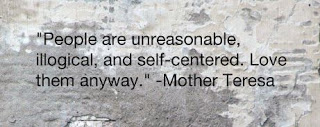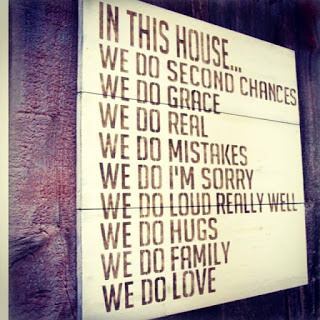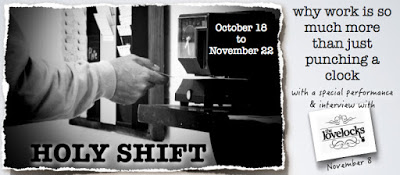
by Jonathan Manafo | Oct 27, 2015 | Sunday Conversations
If we’re honest, we’ll all admit that we’ve complained about work from time to time. Some of us love work, some of us hate work, and the rest of us put up with work. We all wish that we could have a job that we absolutely love, but that’s not always the case.
I once heard that if you’re in a rough patch at work there’s one easy way to help you get through it. Walk into a pharmacy, purchase a Johnson & Johnson thermometer. Not just any kind, but a ‘rectal’ thermometer (that’s right, I just said that). Open the box and read through the literature. In fine print you’ll see, “This product has been personally test and sanitized”. This will put to rest your complaining. You will say with confidence, “I am so thankful for my job”. End of story!
Sometimes work isn’t fun. Really. Our job’s can get tricky. So it’s good to remind ourselves why, first and foremost, we actually work – it’s to make a living. We know what the ideal is; we know that it’s really nice when your passion and your job actually intersect, but it doesn’t always happen. If that’s the case, and even if it isn’t, let’s remember, we are called to be responsible for something, to provide for ourselves and our families – that’s called, making a living.
In Genesis 2:15, we read this, “The Lord took the man and put him in the garden, to work it and take care of it.” After God does his work, he gives Adam a job to do, ‘oversee my creation’. God says, ‘I made this garden, you can take care of this garden, and you can eat from this garden.’ God essentially does the same for us. How? He gives us a similar job – take care of the space I’ve given you to live in. We should start, if we haven’t yet, to see our jobs in that light. What will help us take ownership of our responsibility is narrowing things down to essentials – if I want to eat then I must work.
The Scriptures most common understanding of work is that we make a living by it. Just read these verses and see what we mean:
Proverbs 28:10 leads the way by saying, “Anyone who
tills the land will have plenty of bread, but one who follows worthless
pursuits will have plenty of poverty” (Proverbs 28:10)
Paul says…‘If you don’t
work, you won’t eat’ (2 Thess 3:10)
The bible also says that when we work, we must be wise, strategic & diligent – not lazy. This goes for saving and planning as well.
A sluggard’s appetite is never
filled, but the desires of the diligent are fully satisfied. (Proverbs 13:4)
Sluggards do not plow in season;
so at harvest time they look but find nothing. (Proverbs 20:4)
Do not love
sleep or you will grow poor; stay awake and you will have food to spare. (Proverbs 20:13)
We need to ask ourselves if we have this attitude in our minds and hearts when we work? Are we those who think ahead – those who work hard, no matter the job we have – those who are diligent in getting work and then doing our work well?
Working is our invitation from God to care for the space he’s given us to live in. Working leads to Eating. Working involves strategy, diligence and wisdom, and shouldn’t be done with laziness. There’s one more thing we can say about work – it should be done well, with our true Master in mind.
In Colossians 3:22-25, Paul says what might be the most profound thing about a Christian’s perception of work. “Servants, do
what you’re told by your earthly masters. And don’t just do the minimum that
will get you by. Do your best. Work from the heart for your real Master, for
God, confident that you’ll get paid in full when you come into your
inheritance. Keep in mind always that the ultimate Master you’re serving is
Christ. The sullen servant who does shoddy work will be held responsible. Being
a follower of Jesus doesn’t cover up bad work.” (The Message)
We are called to something higher – in every area of our lives, including and most definitely, work. As we become followers of Jesus we are compelled to do our best, in our homes, in our relationships and in our work places. The whole of Colossians 3 is a challenge to something greater than our society asks of us – to live differently, and better, with friends, family and co-workers. Why? Because we don’t just work for our boss or for our company, we serve Jesus. Our work is yet another way for our faith in Jesus to shine brightly.
So know this, there is honour in providing for yourself and your family, it’s our first purpose of work. Bringing home the bacon is a human and spiritual responsibility. However, while doing your work, in a job you love or one that you don’t like so much, remember to do it with all your heart, with excellence, with skill, because, as Paul says, Christians should be known for good work, and God is (really) the one paying the bills, the one who provides for us, no matter who’s signature is on the cheque.
– – – – – – – – – – – – – – – – – – – – – – – – – – – –
Small(er) Groups Discussion Questions:
What are your first impressions? What resonated with you? What caused you to question?
What do you think of Genesis 2:15? Adam’s first job to work the garden & take care of it? How does that apply to us? And do you feel God invites us to do the same by calling us to work in the space he’s given us to live in?
Is there anything spiritual about making a living? I mean, is it just a given or is there something honourable in providing, for yourself and/or your family?
What do we learn from some of the verses in proverbs? Pick one or all of them to discuss. You might want to read through Proverbs 6:6-11 as well.
How can working well, working with excellence be a reflection of your faith? Do you think it even matters? What do you get from Colossians 3 (above); regarding our calling to live differently, to a higher standard perhaps?
Take some time to pray…
– for your work places
– for your skills and passions
– for those who don’t have work
– for a heart that is grateful for God’s provision
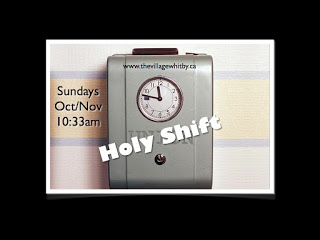
by Jonathan Manafo | Oct 21, 2015 | Sunday Conversations
What was your first job? Did you like it? Was it a grind? Is your job still a grind? Everyone has a different opinion on their work or their work place. Some love it, some hate it.
Do you know that we spend 1/3 of our life at work? Because our work consumes roughly 8-10 hours of our day, your experience will add either significant levels of joy to your life or it will create much misery. In light of that it’s very fair to ask questions around work and faith and how the two go together. If we’re serious about our faith and we are serious about our work, then maybe, just maybe God can be in the middle of it all.
Ecclesiastes 5:18-19 says, “This is what I have observed to be good: that it is appropriate
for a person to eat, to drink and to find satisfaction in their
toilsome labor under the sun during the few days of life God has given
them—for this is their lot. Moreover, when
God gives someone wealth and possessions, and the ability to enjoy
them, to accept their lot and be happy in their toil—this is a gift
of God.”
The bible says it’s ‘appropriate’ for us to find ‘satisfaction’ in our work. That’s enough for me to figure out why and how.
In the next few posts we’ll be investigating how work can be holy, redeeming, satisfying, purposeful, meaningful, etc. How can we have HOLY SHIFTS at work? Is our work more than just punching a clock?
Where’s the first place to start? The best place might be the first work shift recorded in Scripture – that would be Genesis 1 and God’s work of creation. After a long and productive 6 days, the writer of Genesis says that “by the seventh day, God had finished the work he had been doing” (Genesis 2:2)
A few things to think about here: One is that God was actually working. Creation was a task, it was work. Because it’s God we’re talking about, we don’t really associate it with ‘work’, but God was busy making stuff, creating something from nothing. The word in hebrew used for ‘work’ actually (simply) means, ordinary human work. Why does the wrtier of Genesis associate God with ‘ordinary work’? Because as we think about our own work, he wants us to identify with God’s work and his role as a worker.
Tim Keller says that the Bible talks about work before it talks about anything. This is so true. Right at the start of this grand story two characters are found working: Genesis 2 shows a transition from God completing his work to Adam being commissioned to his.
In Genesis 1 we find a God who creates, forms, completes, acknowledges, admires, and even rests (more on that in week 5). We know that there are a few different views or interpretations of Genesis 1, and this isn’t the place to argue either of them, however, no matter your view or opinion, we can all come to one conclusion, God did this. It doesn’t matter how much time he took, but that he took the time to do it.
So…it’s obvious that God is a worker. He is also an admirer of his work. He looks back on his day and says, “That was good”. We learn how to work from God, but we also learn how to appreciate a job well done. From the smallest tasks to the most complex projects, we should be able to look back on our day and say, like God, “that was good” and sometimes even “that was very good”.
Notice he doesn’t just acknowledge humans as good, but everything he created. This is so key to our understanding of how we work and what value we put on certain jobs. Of course humanity is God’s masterpiece, Paul says as much in Ephesians 2:10. But God teaches us, from day one, that every part of the job is important, plants, trees, water, sky, land, light, darkness, and yes, humans. How about our work, do we value every person’s contribution to your company or project? Do we value everyone’s contribution to our society? God teaches us that we can and should, because all work is valuable.
Since God is our fist example of work, how would you write up his resume? If God had a business, what would be on it? And could we limit it to one card or should he have a card for every job he does. Here are few to consider…
God is…
– a creator (Genesis 1)
– an artist (Ephesians 2:10)
– a writer (he writes redemptive stories and invites to part of it)
– an investor (he takes a risk on us, believing that we will grow)
– a business partner (he invites us to do good work along side him)
– an installer
– a finisher (he completes what he starts, Phil 1:6)
– a fire fighter (enters into our chaos)
– a sailor (navigates through storms)
– a fire starter (Moses and the burning bush, gets our attention)
– a doctor (makes broken things well)
– a waiter (Jesus came not to condemn, but to serve)
– a counsellor (a name for the Holy Spirit)
– a life coach (helps me figure things out)
– a carpenter (a builder and constructor…oh, and Jesus was a carpenter)
– a teacher (Jesus taught A LOT)
– God’s a shift boss…the best you’ll have
small(er) group questions:
What are your first impressions? Either of this series or this first talk on God being
our first example of work?
What do you think about God being creator? Does it matter to you if the world was
created in 6 days (literally) or if the point of the story is more that God was the one
who did it?
– feel free to read through
Genesis 1 if you have time and discuss what the most
important thing to take from it is?
When it comes to finding satisfaction in your work
(Eccl 5:18-19), what side of the
line do you stand? Do you find meaning in your work? Or is work a necessary evil?
Do you have a hard time appreciating your work? Is God’s example of looking back
and admiring his work as good a helpful image for you in your work?
After reading
Ephesians 2:10, what are your thoughts of God as an artist?
Last thing. Which one of God’s ‘jobs’ resonate with you most? And if you were to
give God a job title, what would it be and why?
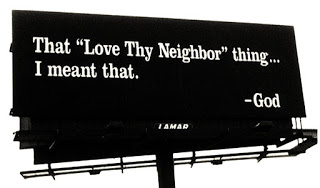
by Jonathan Manafo | Oct 13, 2015 | Sunday Conversations
We may think that it should be a given that churches experience rich and authentic community. The church should be the best example of what it means to be community. Unfortunately, it doesn’t always work out to be that way. First, are are broken people and are prone to make mistakes while failing others. Second, we get complacent and forget that if we are not community, we’re nothing. Jesus doesn’t call us to follow him in isolation but in community.
All that being said (and you can read about part one here), we would be underselling our faith experience and the teaching’s of Jesus if we stopped there. When we experience what it means to be loved by God and then follow him in community, there is one more way for that love to go, OUT.
When Jesus was asked what the greatest commandment was, his response was profound and probably surprising to his listeners. He didn’t answer with just one commandment, he gave them two. Out of the 613 OT commandments, Jesus narrowed it down to Love the Lord your God with all your heart, soul, mind and strength (Deut 6) and Love your neighbour as yourself (Lev 19:18). We think that loving our neighbour is a new thing, but God instilled this as early as Leviticus. Israel learns this when God challenges them to love strangers and aliens as he loved them in Egypt. Then of course Jesus brings it full circle when we brings the two commandments together. Paul even reiterates these words in Galatians 5:13-15.
This Jesus creed, as it’s been referred to, is so profound – you cannot love God without loving people. If this is true, and we know it to be, then our idea of community has also got to be expanded. We love God together with others, and then let that love compel and inspire us to love our neighbours, the ones we like and the ones we don’t; the ones on our street and the ones overseas.
In Matthew 25, Jesus lets us in on what it means to love God, on what it means to know God. He says that those who didn’t serve the marginalized and the poor and the broken actually weren’t close to Jesus at all. But those who served the very least in our society and world were actually the closest to Jesus. Why? Because by serving them we are serving Jesus – By loving them we are loving Jesus.
When we come to grips with these gospel texts, we can’t get away from the reality of community. It’s not just a community of love for one another, but a community of love for others. As beautiful as a church community can be when its working right, it’s never fully right unless we’re releasing our love to our neighbours, to the least of these, to the ones who are with us and the ones who are not. Jesus’ love is big and boundless – it’s far reaching.
Maybe the biggest hurdle to really loving our neighbour is simply beginning to see them as ‘us’ and not as ‘them’. Loving someone who’s part of your family is (normally) easier than loving someone who’s not. So let’s starting seeing others as God’s image bearing kids. We act graciously towards others and serve them when we move from seeing them as ‘you’ and being seeing them as ‘us’.
There are two ways followers of Jesus SERVE community: collectively & individually.
As a church community, we will always offer opportunities to serve collectively; things like Running4Home, community events, local volunteer opportunities, missional endeavours, giving resources away, etc. Those are things to look out for and partner with.
As individuals, what are we doing to serve community? We tend to look for organizations to partner with or events to collaborate with. Those aren’t bad ideas, but Jesus simply said to love your neighbour as yourself. How can we do that? Where do we start? Here’s a simple thought:
Watch / Pray / Respond.
– Watch for what God is doing. Watch for needs in your neighbourhood and city. Watch for broken things that need to be mended and healed.
– Pray for discernment. Pray for neighbours. Pray for your city. Listen to and for God’s direction.
– After watching and after praying, begin to thoughtfully think about how you will respond to a broken situation. Respond with love, with skill, with resources, with respect, with care, with Jesus.
It’s amazing what can happen when we simplify this process and allow God to use us.
We ARE community
We SERVE community
– – – – – – – – – – – – – – – – – – – – – – – – – – – – – – – – – – – – – – – – – – –
small(er) group questions:
Is it easier to BE community or is it easier to SERVE community?
What causes us to get out of balance in our expression of love? Why do some people love God and not others? Can you love others fully without loving God?
Pick one or both of these scriptures to look at and talk about:
– Matthew 25:34-40
– Galatians 5:13-15
What does loving your neighbour look like to you?
Brainstorm about some ways that we can SERVE community better? As a church family and as individuals?
(We do realize that there may be some baseball distractions that interfere with our focus tonight. We understand:)

by Jonathan Manafo | Oct 6, 2015 | Sunday Conversations
Unless you’ve been hiding under a rock, it’s hard not to notice what’s been going on with the Toronto Blue Jays this year. After some mid-season trades the Jays have become the best team in baseball in the second half of this 2015 season. If you’re on any type of social media you’ll notice a plethora of tweets and FB posts about our cities beloved team. You can tell that some people live and die with this team. With social-posts come what we know as ‘#hashtags’. My favourite out of all of them might be #ComeTogether. This so depicts what has happened with this Ball Club and its fans. The city or Toronto, the province of Ontario, the country of Canada, has #ComeTogether to support the Blue Jays. We are enthralled and enamoured with the story that is being written, hoping that its final chapter is another world series for our team.
We can easily steal or use the same #hashtag when talking about our (or other) church community. The church #ComesTogether around the person of Jesus and the story of the gospel. We #ComeTogether as community, as a body, as a collective of people who live by an alternative and counter-cultural storyline, one that embody’s grace, love, peace, forgiveness, justice, etc. You see, the church isn’t a place, it isn’t a building, it isn’t an institution, it’s community of people who are learning what it means to love God, love our neighbour, and make the world better.
Some say it like this…
We work hard at community. Togetherness is not just showing up
at the same place at the same time. (Bruxy)
Christianity isn’t meant simply to
believe; it’s meant to be lived, shared, eaten, spoken, and enacted in the
presence of other people…I can’t be a Christian on my own. I need a community.
I need the church. (Rachel Held Evens)
Israel started this for us. They were discovering what it meant to be ‘God’s people’. But things really started to snow ball with Jesus, his disciples, and the early church who we read about in Acts.
Jesus’ prayer in John 17 is key to how we understand community. He prayed, “that all of
them may be one, Father, just
as you are in me and I am in you…that they may be one as we are one— 23 I
in them and you in me—so that they may be brought to complete unity…Then the world will know that you sent me and have
loved them even as you have loved me.“
Jesus prayed that we would be one…that we would be community. Not just any kind of community, but one that experiences the same unity as he does with God the Father. He also says that this kind of community would be the loudest way to get the message of his love out to the world. FaceBook, Twitter and the internet – they won’t attract anyone unless the church is an ‘attractive’, loving and functional community to be a part of.
Paul’s words about ‘the body of Christ’ 1 Corinthians 12 is an answer to Jesus’ prayer from John 17. He says, “Just as a body, though one, has many parts, but all its many parts
form one body, so it is with Christ. For we
were all baptized by one Spirit so as to form one body—whether
Jews or Gentiles, slave or free—and we were all given the one Spirit to
drink.”
This connects us to Paul’s teaching in Galatians 3 where
he says, “There is neither Jew nor Gentile, neither slave nor free, nor
is there male and female, for you are all one in Christ Jesus.”
These words are written in the context of a Roman Empire where division and class separation is the norm. Large city gatherings would divide people in classes and culture, always making you feel like you didn’t belong to one group or another. The early church, on the other hand would have a Roman, a Jew, a tax collector, a woman, a man, a slave, an business owner, all in the same room, eating the same food, drinking from the same cup, becoming community in the name of Jesus. How cool is this?
Scot McKnight describes it this way, “God designed the church to make the previously invisible
visible to God and to one another…in a new kind of fellowship that the Roman
Empire and the Jewish world had never seen before.”
The church is nothing if it is not a community.
The church is nothing if it’s not together
The church is nothing if it’s not united
We can have great music, nice props, a comfortable place to meet, but if we aren’t becoming community, if we aren’t becoming family, if we aren’t #ComingTogether as a body with Jesus at the centre (or the head as Paul writes), we’re not being who Jesus called us to be. And the world won’t get the full picture of who God is.
What are some ways that we ‘are’ community?
sunday gatherings, small(er)
groups, cheering each other on, helping someone in need, making a meal for
someone, being generous with how and what you give, praying for one another, building community – wherever and whenever we gather.
There is more to this conversation – two parts to how we value community. We ARE community and we SERVE community. More on the second part to this next week.
– – – – – – – – – – – – – – – – – – – – – – – – – – – – – – – – – – – – –
small(er) group questions:
We’ve talked about 3 values in this series. Which one most resonates with you and why?
Discovery / Story / Community?
Do you see how valuing discovery helps both the person who is searching/exploring and the person who is already in the mix of faith and following Jesus?
– what do you feel you’re still discovering in your faith journey with Jesus?
How do you value God’s story? And how would you describe the collide or the intersection with your story?
Community is a little more fresh on our minds…let’s hang out here for the rest of the discussion…
When you think ‘church’ what are some negative & then positive things that come to mind?
Jesus prayed (John 17:20-23) that we would be ‘one’ as he and the Father are one? What do you think that means? How do you think the world will know about God’s story through a heathy and vibrant church community?
The body is a NT metaphor to explain Christian community? Why is it possibly the most perfect way to describe the church?
What are your thoughts on the Bruxy & Rachel Held Evan quotes from above?
How is The Village a healthy example of God’s idea of the church? How can we be getting better?
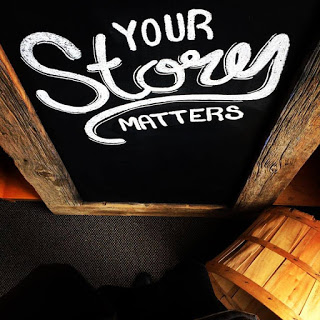
by Jonathan Manafo | Oct 3, 2015 | Sunday Conversations
We all know someone who is a great story teller. Maybe we haven’t actually given them that title, but they are the person in your social circle that gets the most air time, simply because they can make anything interesting. You might even find yourself eavesdropping on a conversation at your local cafe because one of these ‘story tellers’ is talking away and you can’t help but listen.
Some of us are more captivated with stories than others. I would consider myself a reader and movie watcher, but I have some friends who get enveloped in the story – hooked, line and sinker, with all the emotions that come with it.
Stories intrigue us. Stories excite us. Stories teach us. Stories challenge us. Stories Encourage us. Stories guide us. Some stories more than others.
At The Village we’ve chosen STORY as one of our three highlighted values. We feel like it’s what keeps us together, what leads us, what shapes our faith. Of course, not just any story, but the gospel story – the Jesus story.
If your family was like mine, the kitchen table saw lots of wear. We were around that table for hours on end. When company was over we’d hear stories from our guests; my parents reiterated stories from their past; my siblings and I would share stories of what happened during the day. For some cultures this is where identity is formed and character is built. For the church, our story and identity is also formed at a (communion) table and around a story.
In his book called,
‘From Tablet to Table’, Len Sweet says much about how stories are important to culture and to faith. Things like…
“The table is an important part of our acquaintance with God’s
story and ours”
“We don’t crave principles & props, but a story that helps
us understand the world, ourselves and God better.”
“We are stories with skin on”
In the Scripture we read about people discovering God’s story for the world. Over and over again people’s stories connect and intersect with God’s story. Perhaps that’s why we describe our value like this, “We value God’s story, we value your story and we value how those two stories come together” For some this encounter is smooth, for others it’s more of a messy exchange, but for everyone it’s like two worlds are colliding, God’s and ours. That’s where the beauty is – in the intersection, in the collision, sometimes even in the mess.
Why are we drawn to ‘this’ story, to God’s story, to Jesus’ story? Because his story is true and it changes the world. C.S. Lewis said something like this many years ago, “Now the story of Christ is simply a true
myth: a myth working on us the same way as the others, but with this tremendous
difference that it really happened:”
Paul confronted this ‘true’ story and it threw him off his horse, literally. We read about Paul’s collision a few times in Acts. Jesus got his attention, and Paul was never the same after that. He changed. He went from signing off on murders to going through hell so others could find life. His dramatic conversion story is one example of what it means for God’s story and ours to intersect.
Of course we read of others in the scripture who connect with God in amazing ways: Moses at the burning bush, Jacob at Peniel, the cripple in Mark 2 who crashed a Jesus party (literally) to see if this Jesus’ story was as true and powerful as people were saying, etc. In all of these, God’s story embraces us, moves us, draws us – He values where we come from, but loves us so much that he redirects us in a better direction.
What about you? What about us? How is our story connecting to God’s story?
What about those of us who are further along the way? Do we value others story as God values ours?
We want to be a church community who values God’s story more than anything, and who love and appreciate where people are coming from when they meet Jesus for the first time. We want to be known as a safe place, a loving community, where people can engage this amazing gospel story together with us.




